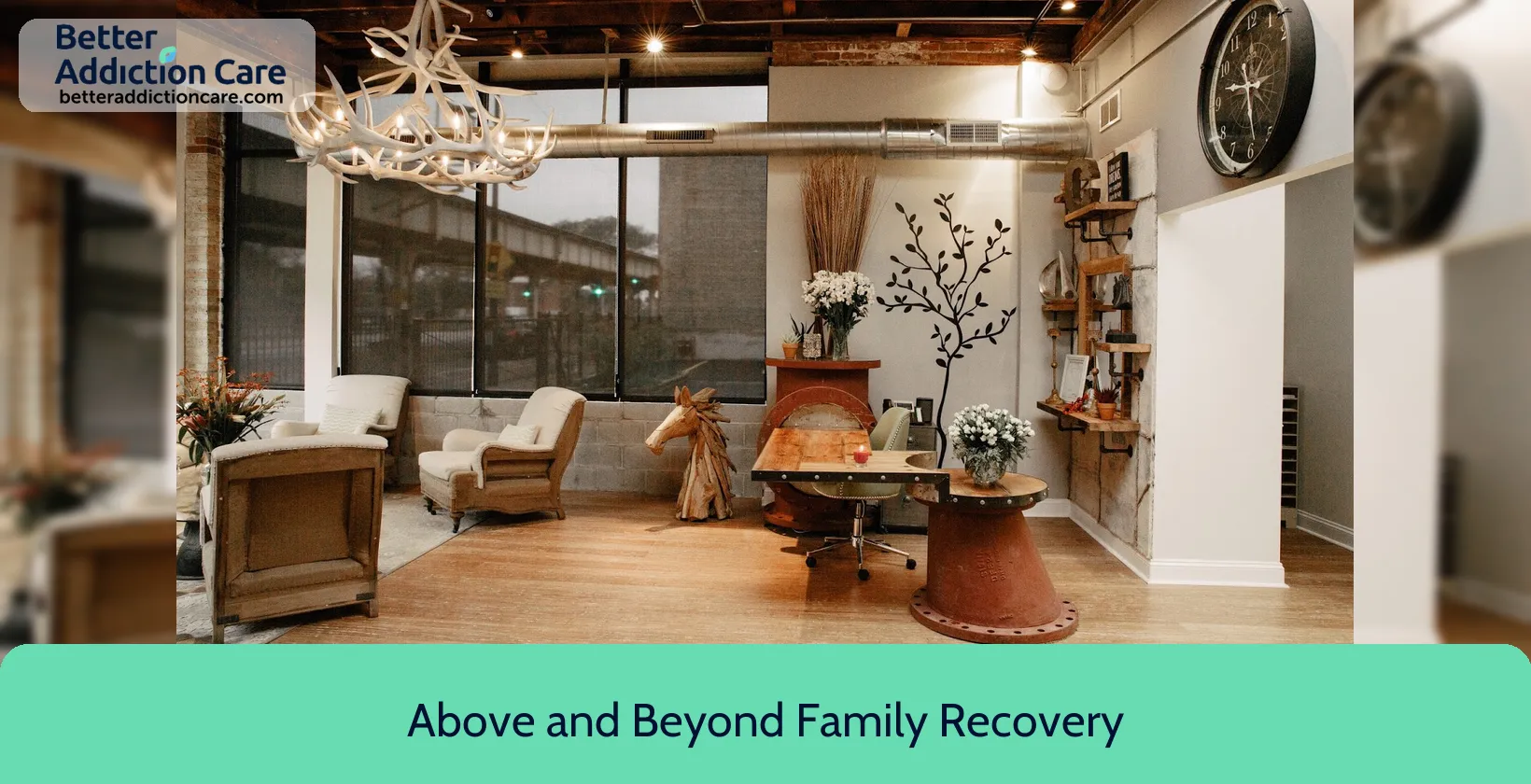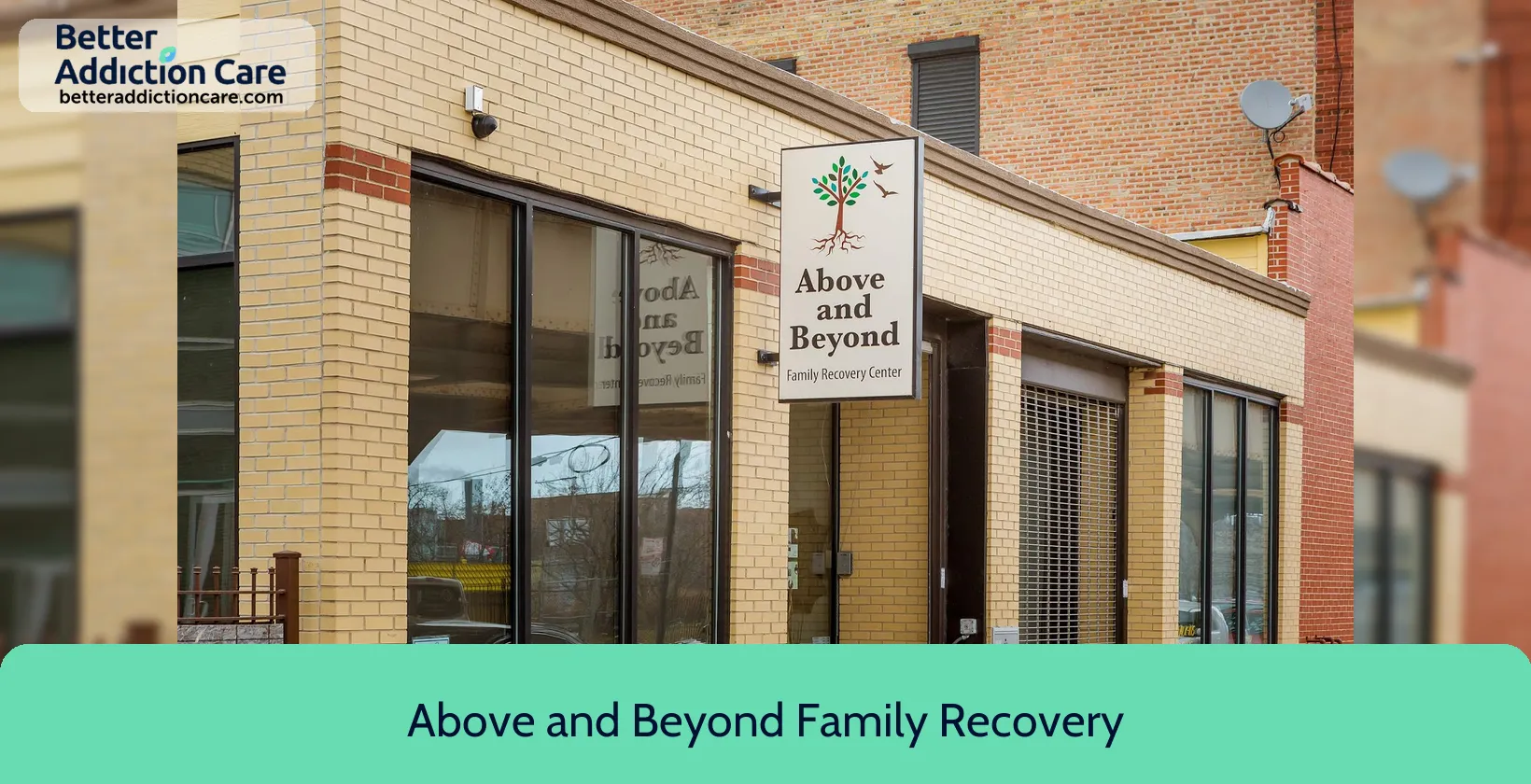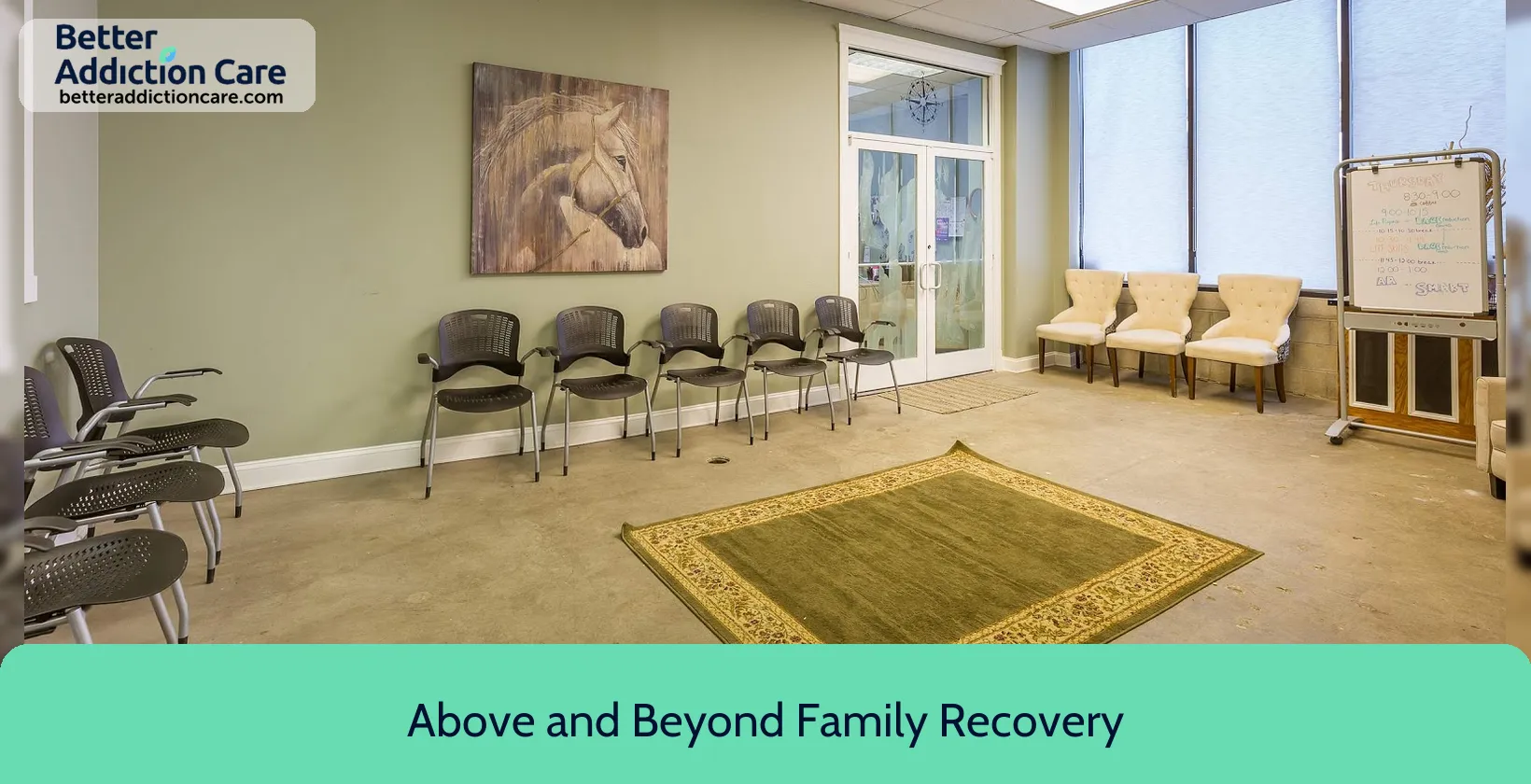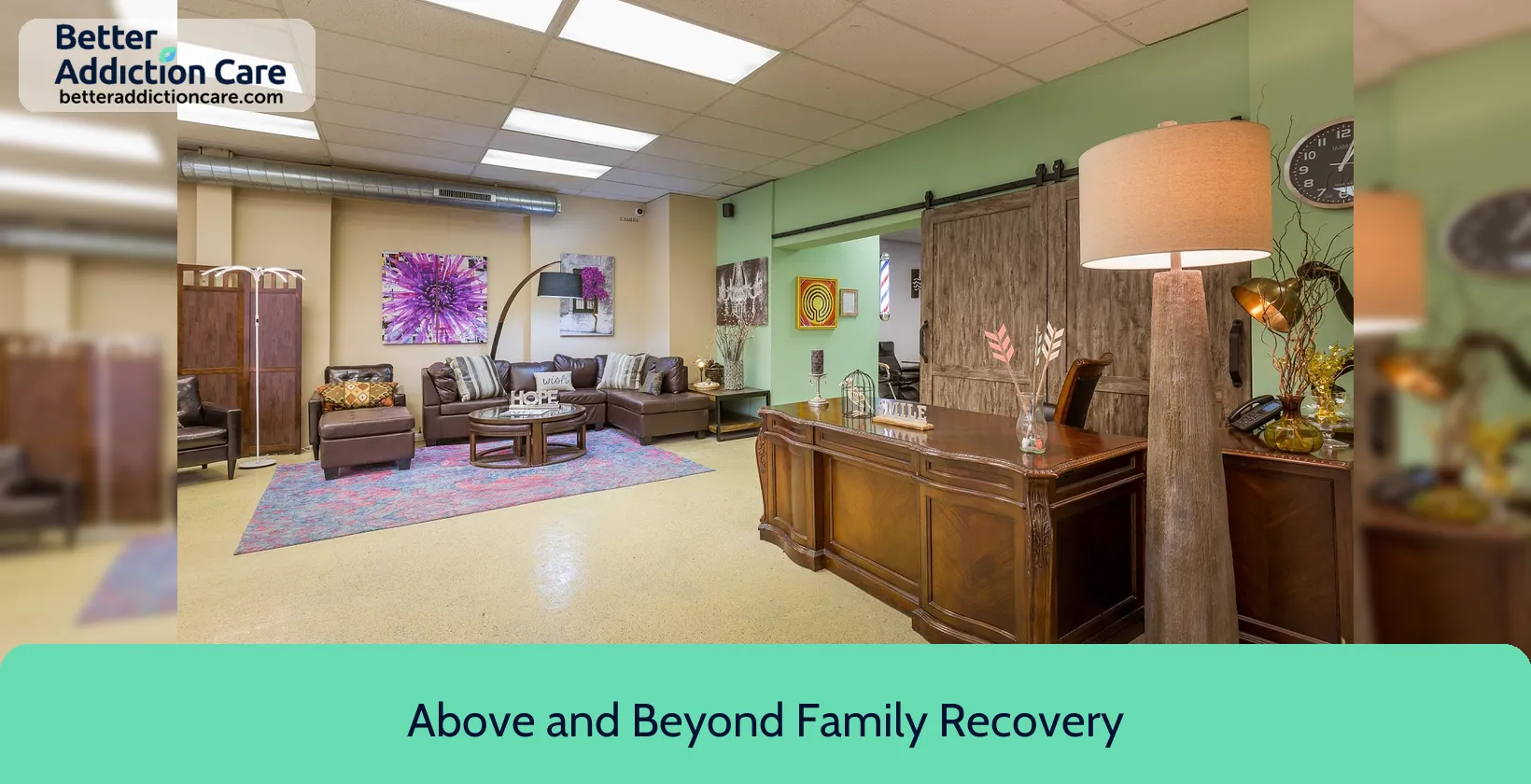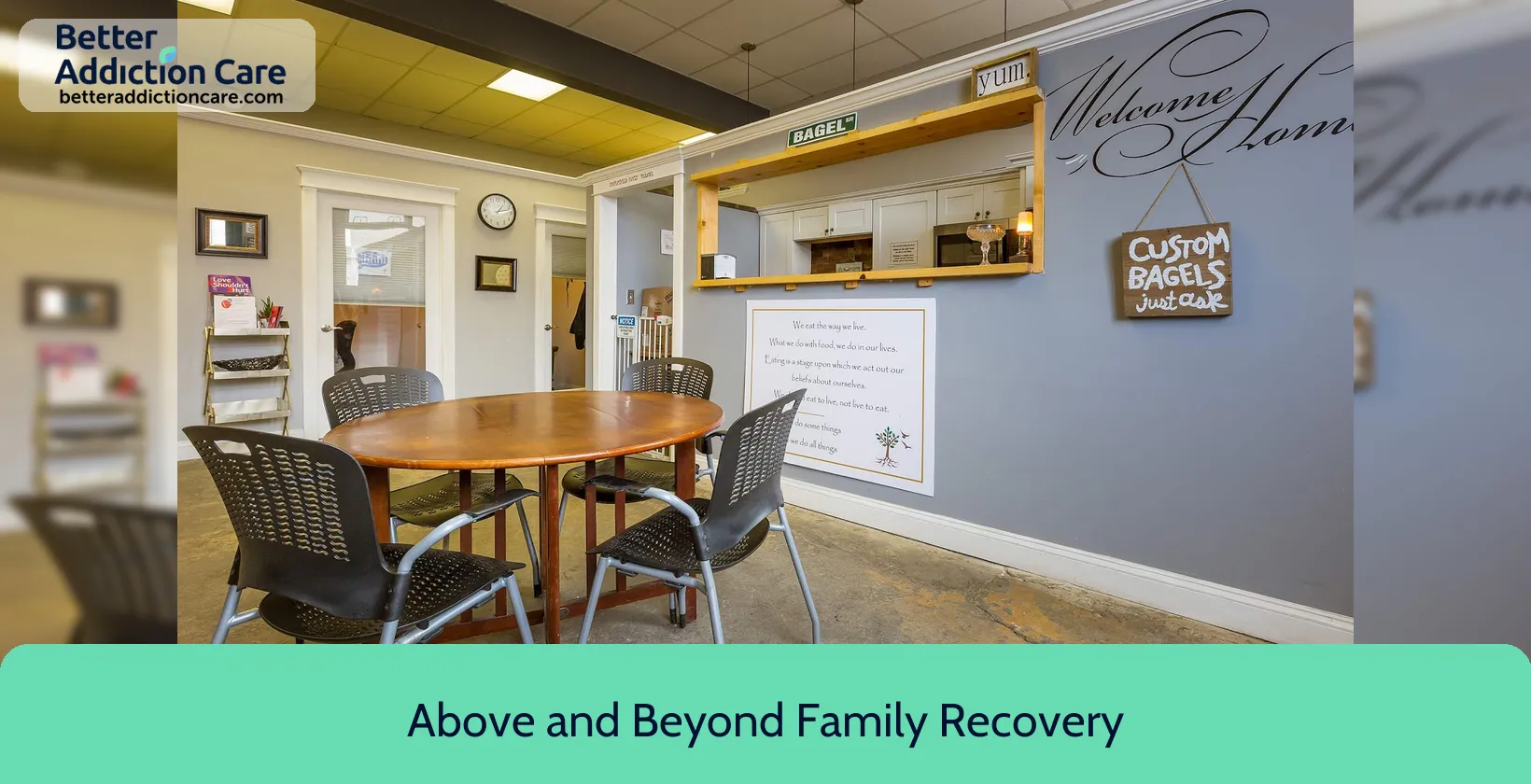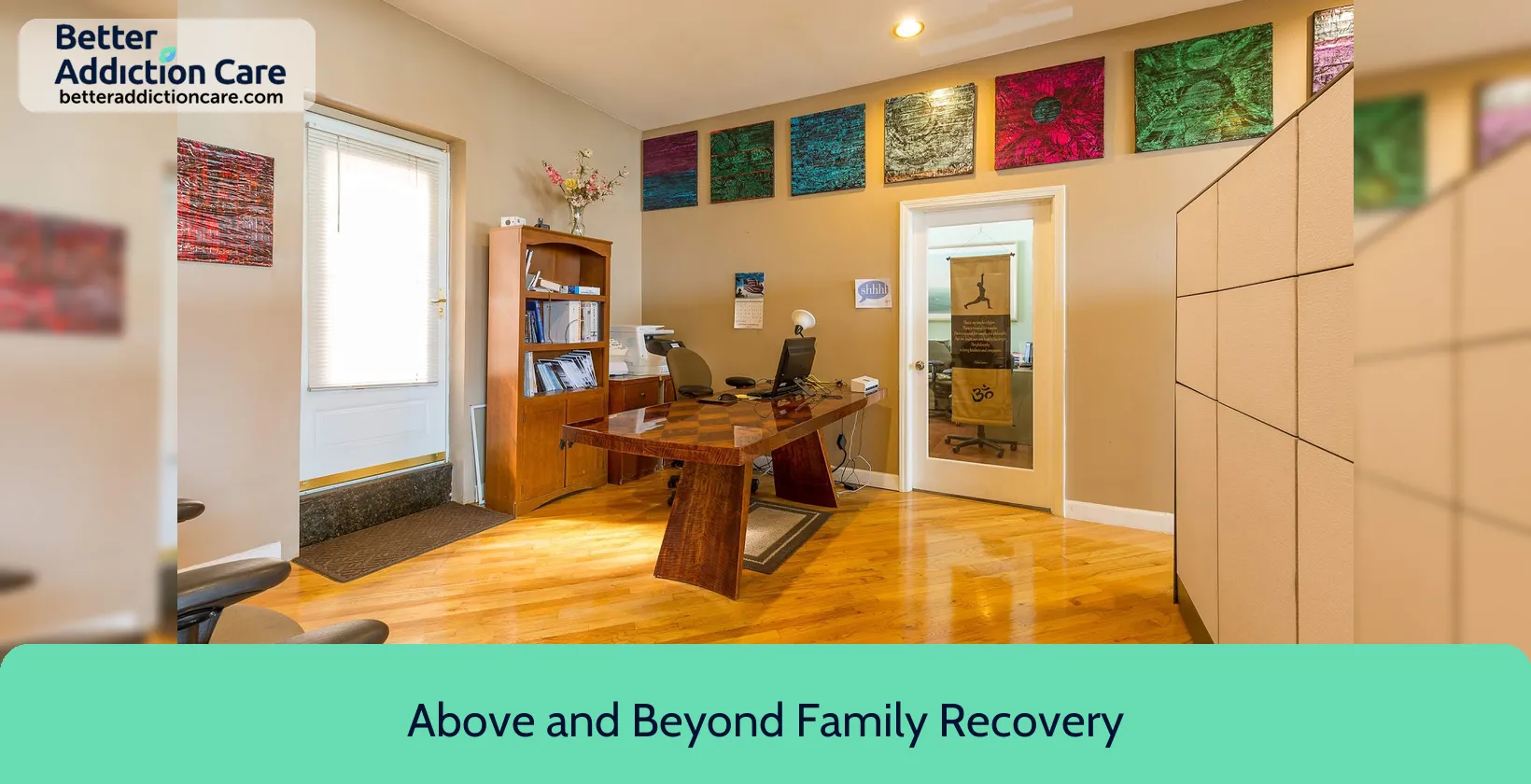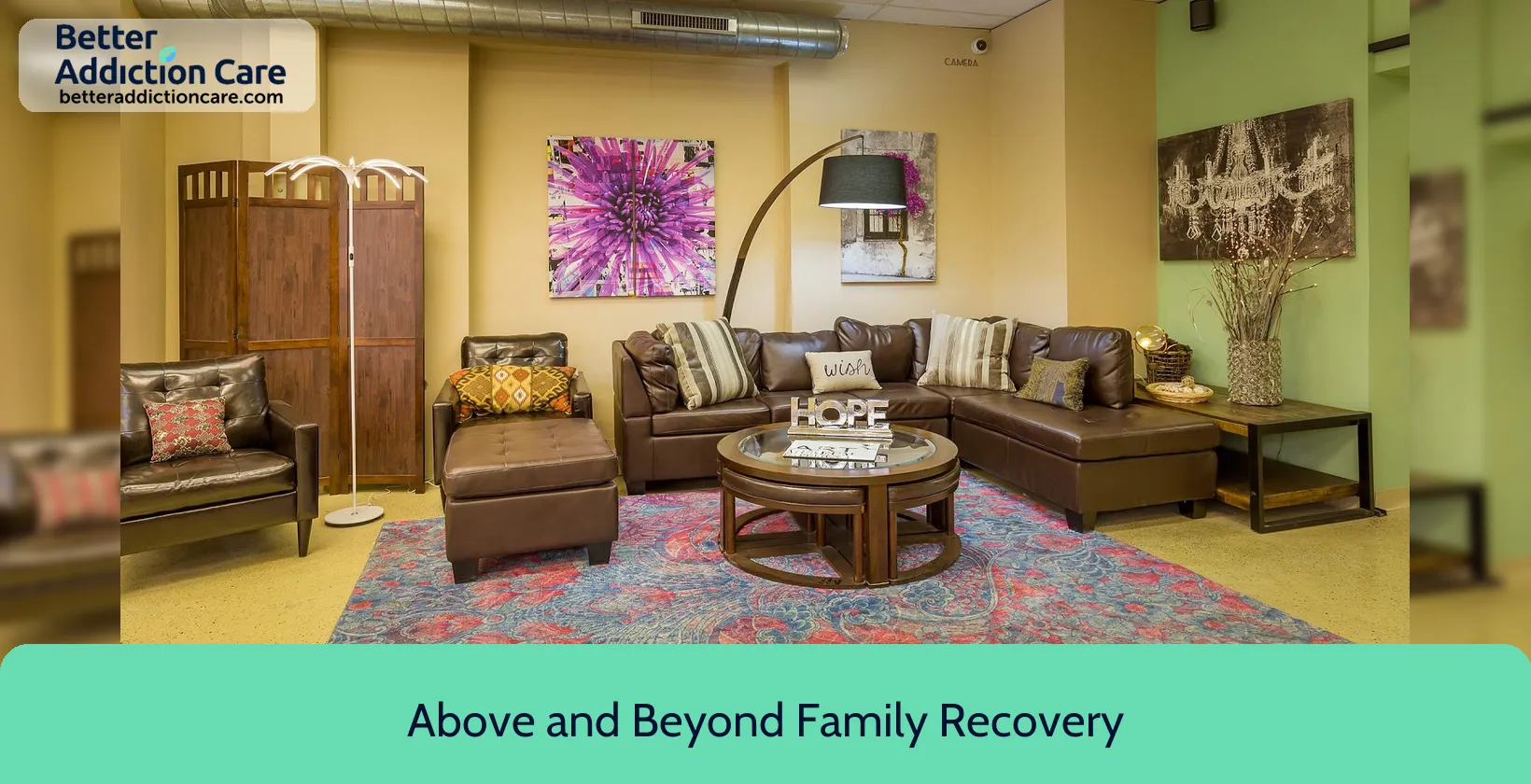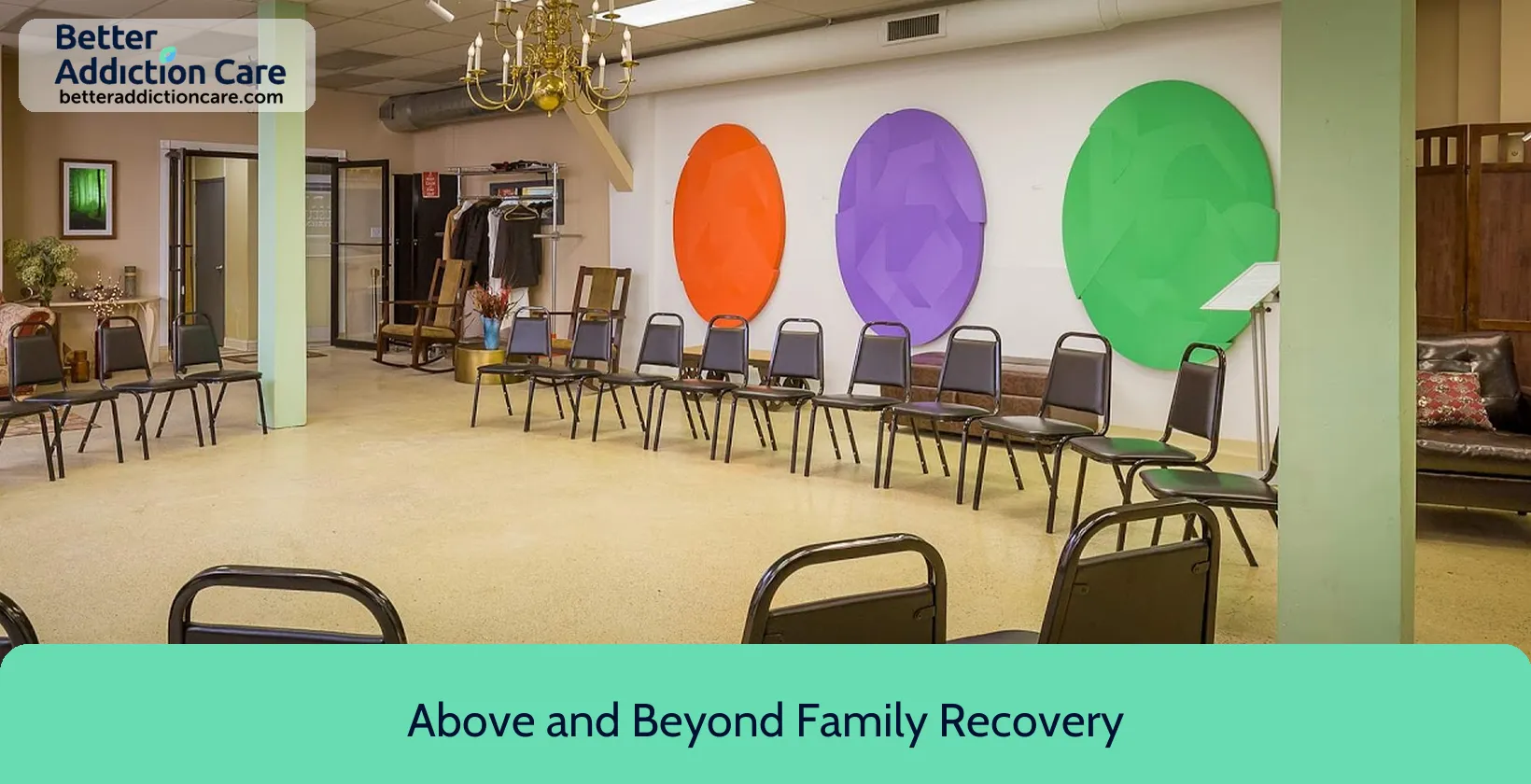Overview
Above and Beyond Family Recovery Center is an outpatient center in Chicago, Illinois, that offers a full range of drug treatment services. The center helps both men and women and has many treatment options that can be adjusted to each person's needs. These include the SMART Recovery and Alcoholics Anonymous (AA) programs, which are based on the 12-step program. Rational Emotive Behavior Therapy (REBT) is another treatment method used by Above and Beyond Family Recovery Center that has been shown to work. This method is meant to help people understand and change the ways they think that make them do addictive things. Along with standard therapies, the center promotes a whole-person approach to rehab and provides art therapy to help people share their feelings and heal.
The center offers both group and one-on-one therapy classes, which are led by qualified clinicians and certified counselors to make sure that each client gets professional and individualized care. Case management services are also offered to help clients get back on their feet and connect them with the tools and support networks they need. With its wide range of services, Above and Beyond Family Recovery Center wants to help its clients heal from addiction and make their lives better in general.
Above and Beyond Family Recovery Center at a Glance
Payment Options
- Medicaid
- Medicare
- State-financed health insurance plan other than Medicaid
- Private health insurance
- Federal, or any government funding for substance use treatment programs
Assessments
- Comprehensive substance use assessment
- Outreach to persons in the community
- Screening for substance use
- Professional interventionist/educational consultant
Age Groups
- Seniors or older adults
- Young adults
- Adults
- Seniors
Ancillary Services
- Case management service
- Acupuncture
- Early intervention for HIV
Highlights About Above and Beyond Family Recovery Center
6.97/10
With an overall rating of 6.97/10, this facility has following balanced range of services. Alcohol Rehabilitation: 8.00/10, Drug Rehab and Detox: 6.31/10, Insurance and Payments: 6.00/10, Treatment Options: 7.58/10.-
Alcohol Rehabilitation 8.00
-
Treatment Options 7.58
-
Drug Rehab and Detox 6.31
-
Insurance and Payments 6.00
Accreditations
State department of health:

Government agencies issue State Licenses, which grant rehabilitation organizations permission to conduct their operations lawfully within specific geographic regions. Licenses needed to operate are typically determined by the type of rehabilitation program offered by the facility and its physical location.
Registration: 100543
SAMHSA certification for opioid treatment program (OTP):
Accreditation by the Substance Abuse and Mental Health Services Administration (SAMHSA) for Opioid Treatment Programs (OTPs) signifies that a program has met strict standards for providing high-quality care to individuals with opioid use disorders. It assures patients, families, and communities that the OTP follows evidence-based practices, employs qualified staff and maintains a safe and effective treatment environment. This accreditation reflects the program's commitment to addressing the opioid epidemic and promoting recovery.
Treatment At Above and Beyond Family Recovery Center
Treatment Conditions
- Alcoholism
- Substance use treatment
Care Levels
- Outpatient
- Intensive outpatient treatment
- Regular outpatient treatment
- Aftercare
Treatment Modalities
- Cognitive behavioral therapy
- Telemedicine/telehealth therapy
- Substance use disorder counseling
- Trauma-related counseling
- Smoking/vaping/tobacco cessation counseling
Ancillary Services
Languages
- English
Additional Services
- Pharmacotherapies administered during treatment
- Mentoring/peer support
- Breathalyzer or blood alcohol testing
Special Programs
- Criminal justice (other than DUI/DWI)/Forensic clients
- Clients who have experienced trauma
- Clients who have experienced sexual abuse
- Clients who have experienced intimate partner violence, domestic violence
Get Help Now
Common Questions About Above and Beyond Family Recovery Center
Contact Information
Other Facilities in Chicago

6.77

6.86

7.14

7.14

7.14

7.14

7.14

7.08
DISCLAIMER: The facility name, logo and brand are the property and registered trademarks of Access Evanston Rogers Park Family Center, and are being used for identification and informational purposes only. Use of these names, logos and brands shall not imply endorsement. BetterAddictionCare.com is not affiliated with or sponsored by Access Evanston Rogers Park Family Center.
